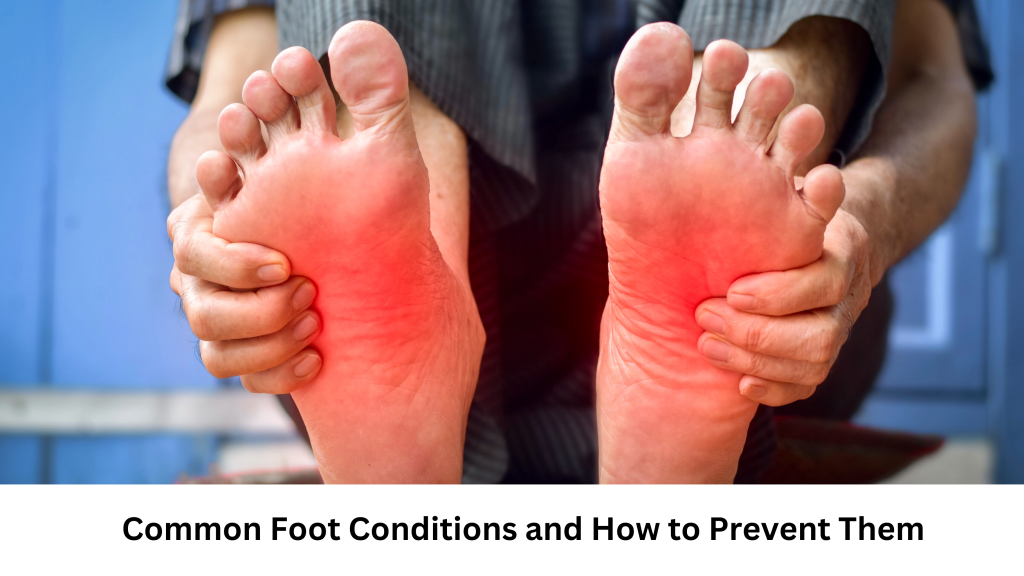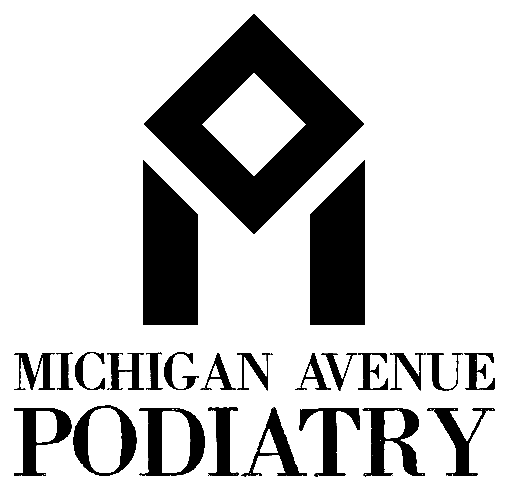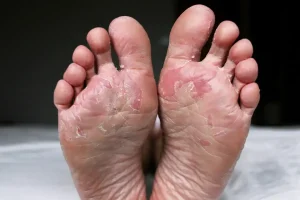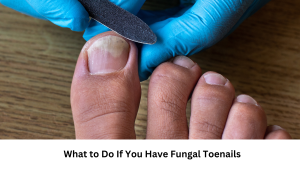Foot pain can be a frustrating experience that affects daily life and mobility. If you’re dealing with persistent foot pain, it’s important to explore effective treatments that can help alleviate discomfort and improve your quality of life. In this blog, we’ll discuss the best treatments available for persistent foot pain, focusing on approaches suitable for various conditions commonly experienced in locations like Chicago, Elmhurst, Tinley Park, Downtown Chicago, and Flossmoor.

Understanding Foot Pain
Foot pain can stem from various causes, including injuries, underlying health conditions, or improper footwear. Common conditions that lead to persistent foot pain include:
- Plantar fasciitis
- Achilles tendonitis
- Flat feet
- Bunions
- Arthritis
- Neuropathy
Identifying the specific cause of your foot pain is the first step in determining the best treatment. A consultation with a podiatrist can provide clarity and guidance.
1. Rest and Elevation
What It Is:
One of the simplest treatments for persistent foot pain is to rest the affected foot and keep it elevated. This approach helps reduce swelling and allows the foot to recover.
How to Do It:
- Take breaks from standing or walking.
- Elevate the foot on a pillow while sitting or lying down.
2. Ice Therapy
What It Is:
Applying ice can help alleviate inflammation and numb sharp pain. This treatment is especially effective for injuries or conditions like plantar fasciitis.
How to Do It:
- Use an ice pack wrapped in a towel and apply it to the affected area for 15-20 minutes at a time.
- Repeat several times a day, especially after activities that aggravate the pain.
3. Compression
What It Is:
Compression involves using wraps or compression socks to reduce swelling and support the foot.
How to Do It:
- Use an elastic bandage to wrap the foot, being careful not to restrict blood flow.
- Consider wearing compression socks to provide consistent support throughout the day.
4. Orthotic Inserts
What It Is:
Custom or over-the-counter orthotic inserts can provide additional support and cushioning for the feet, improving alignment and reducing pain.
How to Do It:
- Visit a podiatrist for a custom orthotic fitting or purchase over-the-counter options designed for specific foot issues.
- Insert them into your everyday shoes to enhance comfort.
5. Physical Therapy
What It Is:
A physical therapist can develop a tailored exercise program to strengthen foot muscles, improve flexibility, and promote healing.
How to Do It:
- Attend physical therapy sessions regularly.
- Follow the prescribed exercise regimen at home to reinforce your progress.
6. Medication
What It Is:
Over-the-counter (OTC) pain relievers like ibuprofen or acetaminophen can help manage persistent foot pain by reducing inflammation and alleviating discomfort.
How to Do It:
- Consult with a healthcare provider to determine the best medication for your condition.
- Follow dosing instructions and be aware of potential side effects.
7. Footwear Modification
What It Is:
Wearing proper footwear is essential for alleviating foot pain. Shoes should provide adequate support, cushioning, and room for the toes.
How to Do It:
- Choose shoes with good arch support and a wide toe box.
- Avoid high heels and narrow shoes that can exacerbate foot pain.
8. Injections
What It Is:
Corticosteroid injections can reduce inflammation and provide temporary relief for conditions like plantar fasciitis and arthritis.
How to Do It:
- Discuss the option of injections with your podiatrist.
- Follow up on the effectiveness and any necessary adjustments to your treatment plan.
9. Surgery
What It Is:
In severe cases, surgery may be necessary to correct structural issues or remove damaged tissue.
How to Do It:
- Consult with a specialist to discuss surgical options if conservative treatments are ineffective.
- Understand the risks and benefits before proceeding.
Conclusion: Seek Professional Help
Persistent foot pain is not something to ignore. If self-care measures do not provide relief, it’s essential to seek professional help from a podiatrist in Chicago, Elmhurst, Tinley Park, Downtown Chicago, or Flossmoor. They can accurately diagnose the underlying cause of your pain and recommend a comprehensive treatment plan tailored to your needs.
By understanding and addressing persistent foot pain, you can take proactive steps toward a more active and pain-free life. Don’t let foot pain hold you back—explore your treatment options today!



